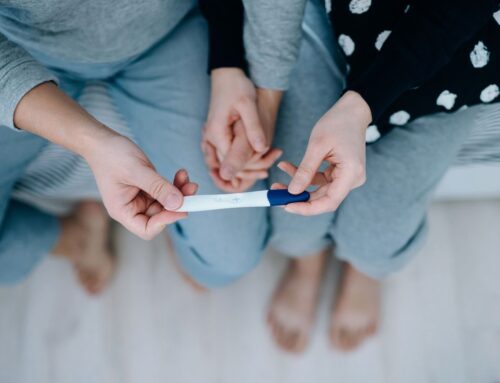Last week, we began a series that outlines the most common complications that pregnant women experience. Our intention is not to scare you. Being fully informed of symptoms, the way these problems appear, will allow you to identify the specific ways in which your body is changing. And if you need help, seek it out.
Our last blog post covered several complications that usually occur during the first trimester of pregnancy. We also discussed some ways that pregnant women who do not currently have health insurance can receive the prenatal care they need. You can find that article here.
Common Second Trimester Pregnancy Complications
The second trimester begins around 13 weeks and lasts for the next 14, until your 27th week of pregnancy. During this period, your baby’s organs are forming and eventually become fully-developed. Fingers and toes separate, teeth and bones become dense and strong, and eyebrows and hair grow. Your baby’s nervous and muscular systems begin to function during the 5th month, so you will probably start to feel movement, as well.
Now that we know how pregnancy usually continues during this time, let’s turn to several problems that may arise. Listen carefully to your body, and contact your preferred health provider if you have any concerns.
Gestational Hypertension
Hypertension simply means “high blood pressure,” and gestational hypertension is high blood pressure that occurs only during pregnancy. You might see it called “pregnancy-induced hypertension” or PIH, too. Gestational hypertension’s precise cause remains unknown, but certain risk factors may increase the likelihood that you develop it during a pregnancy. These include:
- Pre – existing high blood pressure
- Forms of kidney disease
- Pre – existing diabetes
- Presence of twins or triplets
- Underweight or overweight
- Certain immune system disorders, like lupus
The Children’s Hospital of Philadelphia (CHOP) reports that PIH “occurs in about 5 to 8 percent of all pregnancies”; it’s surprisingly common. Even so, gestational hypertension can have very serious consequences. For a mother, PIH can lead to organ damage. And for her baby, PIH may result in placental abruption, a “premature detachment of the placenta from the uterus.”
Symptoms Of Pregnancy – Induced Hypertension
Most of PIH’s symptoms, most obviously an increase in blood pressure, can be spotted by your doctor during a prenatal exam. But others you may notice on your own:
- Sudden, unexpected weight gain
- Blurred or double vision
- Increased nausea
- Pain on the right side of your abdomen, or around your stomach
- Limited urination, peeing in small amounts
Unfortunately, many of these symptoms occur during perfectly normal pregnancies as well. It can be extremely difficult, even impossible, to tell the difference. If you are concerned about anything you are experiencing, contact your doctor for a check-up. You can learn more about gestational hypertension on CHOP’s website here.
Is PIH The Same As Pre – Eclampsia?
No, although both conditions involve high blood pressure. Pre-eclampsia, in most cases, is much more serious than gestational hypertension. It involves an increase in blood pressure and additional damage to another organ, usually the kidneys. This damage is often identified by the presence of protein in your urine, which your doctor will screen for during a prenatal exam. Other symptoms include:
- Extremely painful headaches
- Fatigue, excessive tiredness
- In severe cases, jaundice may occur. Jaundice presents as a yellow discoloration of the skin and / or eyes.
How Are Pregnancy – Induced Hypertension & Pre – Eclampsia Treated?
The way in which pregnancy – induced hypertension and pre – eclampsia are treated will vary depending on how close you are to your due date.
Women with minor cases of gestational hypertension are often told simply to lie on their left sides. This can improve blood flow, by taking excess weight off your blood vessels.
Severe cases of both conditions can only be “cured” by delivering your baby through induced means. Pre – eclampsia can be fatal, both to you and your baby. Until your blood pressure is brought under control, you’re at elevated risk of experiencing seizures, stroke, and internal bleeding.





